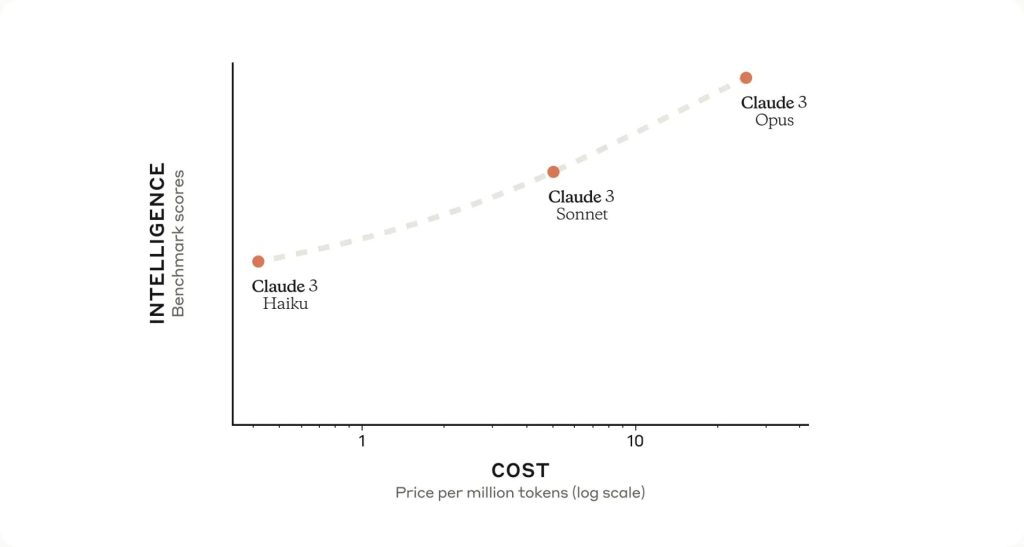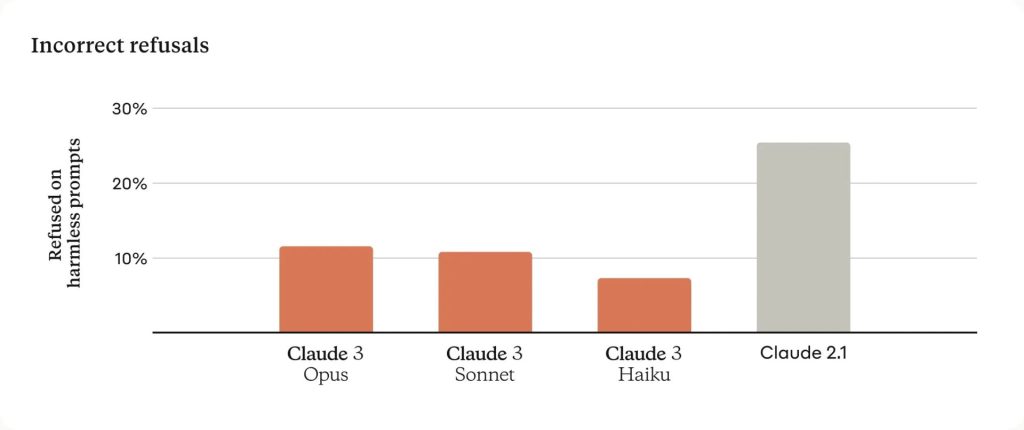Imagine a world where interacting with AI is as seamless and reliable as chatting with a well-informed friend. That’s the vision behind Anthropic’s latest release of their Claude 3 AI models, which promise to redefine our expectations from artificial intelligence. Dubbed Claude 3 Opus, Sonnet, and Haiku, these models are not just new kids on the block; they’re advanced, swift, and significantly less prone to ‘hallucinations’ – a term for when AIs generate incorrect or nonsensical responses.
The tech community has been buzzing since the announcement that two of these models, Opus and Sonnet, are available now through Anthropic’s API and claude.ai platform. And hold onto your hats because Haiku is set to join them in mere weeks. So what sets these models apart? Let’s dive in.
Claude 3 Models: A Trio of Cognitive Powerhouses
Anthropic’s official news release introduces us to the three variants of Claude 3 – each designed to cater to different needs but all sharing a common goal: pushing the boundaries of AI performance while keeping things real (and accurate).
Claude 3 Opus, the most sophisticated sibling, boasts near-human comprehension levels on complex tasks. It shines brightest when dealing with open-ended prompts or unseen scenarios. With its impressive capabilities in task automation, R&D strategy, and analysis, it promises higher intelligence than any other model available.
Moving down the line, Claude 3 Sonnet strikes an optimal balance between speed and smarts. It’s touted as being twice as fast as its predecessors while still delivering robust performance—ideal for rapid-fire tasks like knowledge retrieval or sales automation.
Last but not least, Claude 3 Haiku is all about speed without compromising intelligence. This model offers near-instant responsiveness that could revolutionize customer interactions and content moderation by providing quick and accurate support.

Near-Human Comprehension Meets Swift Responsiveness
The ZDNet article on Claude 3 notes how it outperforms competitors like ChatGPT and Gemini across various benchmarks including knowledge tests at undergraduate and graduate levels, basic mathematics, problem-solving, and coding.
Faster response times are another highlight; Sonnet responds twice as quickly compared to previous generations. Meanwhile, Haiku sets a new standard by analyzing dense research papers in under three seconds—a feat unmatched in its category!
A Leap Forward in Accuracy & Understanding
Error reduction is critical when deploying AI at scale. The new suite of models demonstrates this beautifully by reducing incorrect answers significantly compared to earlier versions. These advancements mean businesses can rely more on AI for accurate customer service without fear of misleading information.

Tackling Bias & Enhancing User Experience
Bias in AI has long been a concern; Anthropic addresses this head-on with advancements that show reduced biases according to their internal testing metrics (The Verge’s coverage). Plus, they’ve made strides toward easier interaction with complex multi-step instructions—a win for user experience!
Smarter & Safer AI Is Here
The launch of Anthropic’s Claude 3 family marks an exciting evolution in the realm of generative AI—smarter systems that understand more deeply yet make fewer mistakes. As we look forward to seeing how Haiku will complement its siblings Opus and Sonnet already making waves in real-time applications across industries worldwide.
Frequently asked questions on Anthropic Claude 3 AI Models
What are the key features of the new Anthropic Claude 3 AI models?
The new Claude 3 AI models by Anthropic, namely Opus, Sonnet, and Haiku, offer advanced features such as near-human comprehension levels, faster response times, reduced error rates, and lower instances of ‘hallucinations’. Each model is designed for different needs: Opus for complex tasks with high intelligence demands; Sonnet for a balance between speed and performance; and Haiku for near-instant responsiveness without compromising intelligence.
How do the Claude 3 models improve upon previous generations in terms of accuracy?
The latest suite of Claude 3 models demonstrates a significant reduction in incorrect answers compared to earlier versions. This leap forward in accuracy means that businesses can depend more on AI for precise customer service without the risk of providing misleading information.
When will the Claude 3 Haiku model be available?
While Opus and Sonnet are already accessible through Anthropic’s API and claude.ai platform, the Haiku model is expected to be released in the coming weeks.
What makes Claude 3 Opus stand out among other AI models?
Claude 3 Opus is distinguished by its sophisticated capabilities that allow it to understand and perform complex tasks with near-human comprehension. It excels at handling open-ended prompts or scenarios never seen before, making it highly suitable for task automation, R&D strategy, and analysis.
In what ways does Anthropic aim to reduce biases within their AI models?
Anthropic has made advancements in reducing biases within their AI based on internal testing metrics. They are actively addressing this concern by implementing improvements that not only minimize bias but also enhance user experience with easier interaction for complex multi-step instructions.
What advantages does Claude 3 Sonnet have over its predecessors?
Claude 3 Sonnet offers an optimal balance between speed and smarts. It responds twice as fast as previous generations while still delivering robust performance. This makes it ideal for rapid tasks like knowledge retrieval or sales automation.
How does Claude 3 Haiku revolutionize customer interactions and content moderation?
Claude 3 Haiku revolutionizes customer interactions and content moderation by providing quick and accurate support thanks to its near-instant responsiveness. This feature could greatly benefit real-time applications where speed is crucial.

